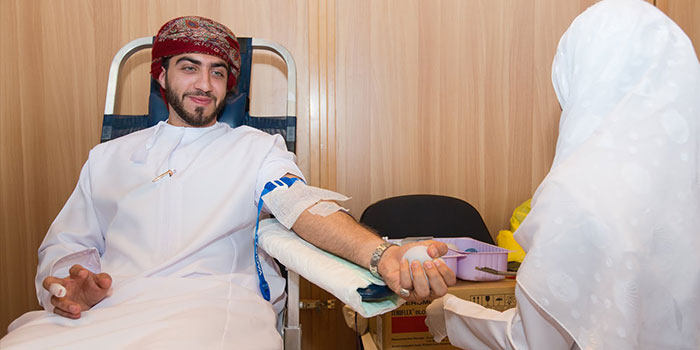
Muscat: ROHM’s annual blood donation camp will be held on February 7 under the slogan of ‘Donating means a few minutes to you, but a lifetime to somebody else’.
Apart from being open to staff members, the public is also invited to come and donate blood on the day from 10am to 5pm at the South Porch Hall (Southern Entrance at ROHM). Through this initiative, the Royal Opera House Muscat aims to support the community by helping patients in need, increasing the blood supply and raising awareness about the need for donors.
ROHM invites everyone to contribute in this generous act of ‘giving the gift of life’ and helping the need of others. Donors will first be tested by a medical team for haemoglobin levels, blood pressure, blood type and other criteria needed in order to meet the conditions for donating blood.
Through the camp, ROHM’s message is that ‘Donating blood is a simple thing to do, but it can make a big difference in the lives of others. The donation process may take a few minutes of your time, but the enduring impact is larger than expected on the receiver of the donated blood.
‘In addition, blood donation is one of the ways to maintain self health and highly recommended by the medical advisors, therefore blood donors are able to donate blood several times a year and can rest assured it will have a positive effect on their health.’
ROHM first launched their blood donation campaign in 2014, when many generous donors from different nationalities and ages came forward to support the cause.
To encourage donation and appreciate those supporting the noble cause, donors will be granted with up to 70 per cent discount on two tickets for the fifth season Programme (2016-2017) at Royal Opera House Muscat. The safe transfusion of blood and blood products helps save millions of lives every year. It can help patients suffering from life-threatening conditions live longer and with better quality of life, as well as support complex medical and surgical procedures.
It also has an essential, life-saving role in road accidents, maternal and child care and in the event of man-made or natural disasters.